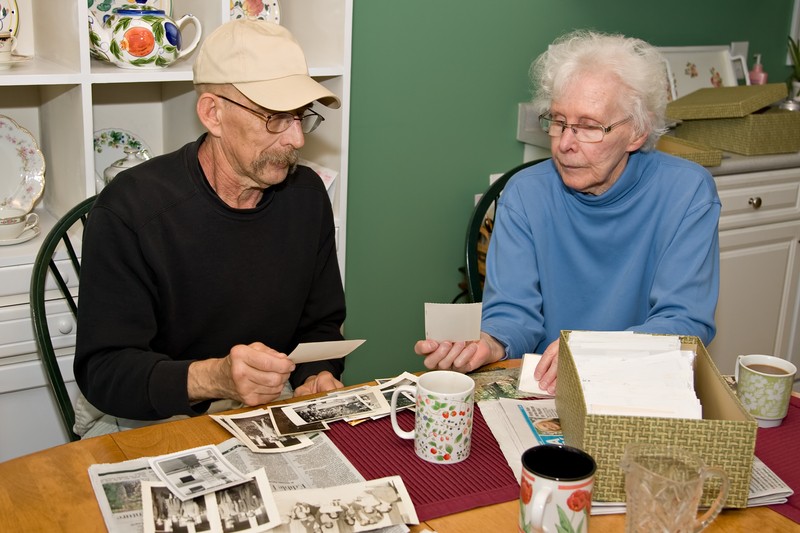 by Debbie Hommel, ACC/MC/EDU, CTRS
by Debbie Hommel, ACC/MC/EDU, CTRS
The age group over the age of 85 is the fastest growing age group in our country. With this increase, the number of individuals with some sort of dementing illness increases as well. In order to meet the needs of elders living with memory loss, many communities have created special care neighborhoods. Memory care is the fastest growing segment in long term care, with 60% of communities now having special care areas catering to the needs of elders living with cognitive loss. What does the staff need to know when working in such a specialized area of care? Anyone who agrees to work in the memory care neighborhood should not only have empathy for the population but also knowledge regarding dementia and professional helping skills.
What is dementia?
This may seem rather redundant to mention but there is so much to learn about Alzheimer’s disease and the many neurological conditions which affect cognitive functioning. The person doesn’t just experience memory loss but impairments in reasoning, judgment, abstract thinking, attention span and perception. Any staff who works in this neighborhood should have extensive training in understanding Alzheimer’s disease and how it affects the brain. Having an understanding that the person is at the mercy of the damage that is occurring in the brain may contribute to staff being more patient and understanding of the many challenges when working with elders with dementia. There are several great resources available for training staff, which include:
The ADEAR Center which is the National Institute of Aging’s Alzheimer’s information site. They have printable handouts, booklets, images which could be used in in-services and videos which you can download. https://www.nia.nih.gov/alzheimers/topics/alzheimers-basics
My site also has a link page for Dementia where I have listed all my favorite sites on the subject.
https://dhspecialservices.com/dementiasites.htm
What is dementia capable staff?
The Alzheimer’s Association coined the phrase “dementia capable staff” in their “Key Elements of Dementia Care” program. Being “dementia capable” means being skilled and knowledgeable in working with people living with dementia and knowledgeable about the kinds of services and techniques that are helpful to the elder and the family. Prior to working on the neighborhood, the staff should receive training in understanding the disease, communication techniques, understanding behavior and means to keep the elder engaged in life through activities and other quality of life interactions. More importantly, the staff member needs to be able to listen with their heart and be willing to develop trust relationships with the elder.
Alzheimer’s disease affects the communication centers of the brain. |
We learn rather early in our work with individuals living with dementia, that each person is unique. Knowing that, we learn there are many variations to the communication losses they experience. To more effectively communicate with these individuals, the staff needs to have a good understanding of the various communication strategies to assist elders with dementia. Accepting the person in their reality, “joining their journey” and validating them where ever they may be are some examples of interaction skills and approaches.
The behavior is always right.
All behavior is motivated by some sort of internal or external stimuli. As unreasonable or “inappropriate” as some of the behaviors demonstrated by elders living with dementia may be, to that individual – the behavior is the right thing to do at the time. Our challenge is understanding what is provoking the behavior. Meeting the needs or minimizing the stresses and external cues which stimulate negative behaviors is a key approach in resolving behavioral expressions. There are two independent study programs available on DH Special Service on understanding challenging behaviors. Understanding Behavioral Expressions and Skills and Strategies for Challenging Behaviors can be found on the Distance Learning page.
Everything can be an activity.
On a memory care neighborhood, the concept of “everything can be an activity” is crucial. Many elders living with dementia do not function well within structured groups therefore; alternate opportunities need to be available. The memory care neighborhood should re-create life experiences and daily living tasks as part of the “activity program”. Activities can include the organized, planned and structured programs introduced by the activity or TR department. But, it can also include active involvement in daily care routines (getting dressed, eating, household tasks in their room and throughout the neighborhood). Many elders living with dementia find greater satisfaction participating in these tasks than in structured recreation programs. All staff and family who enter the neighborhood need to know that every encounter is an opportunity for quality of life exchanges. Anyone and everyone can involve the elder in tasks or diversions throughout their day.
Special Care Neighborhoods may become the norm in the future where all elders will receive the individualized services they deserve. Until that time, the activity professional can assume a leadership role in guiding our communities in creating special care neighborhoods which truly meet the needs of these individuals.
Check out the independent study programs
Fundamentals of Special Care for Memory Care
NCCAP Pre-approved for 6 Continuing Education Hours
https://dhspecialservices.com/scu.htm
Understanding Individualized Dementia Care
NCCAP Pre-approved for 8 Continuing Education Hours
https://dhspecialservices.com/understandingdementiaindependentstudy.htm

